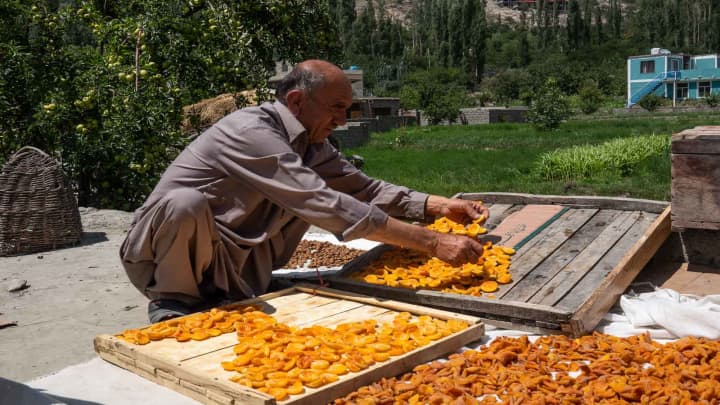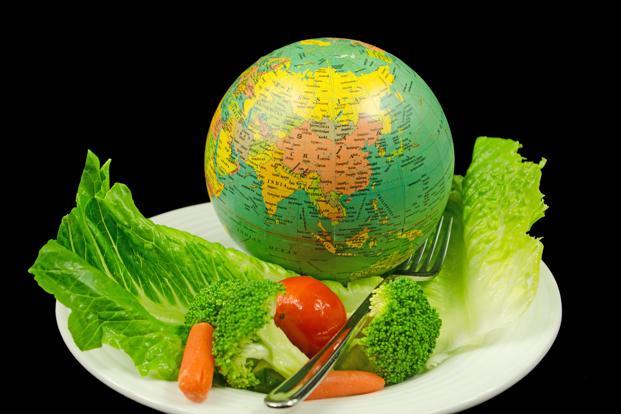Lessons from the Hunza Diet

Eating well is important for every person, no matter where they live. A good diet gives the body the energy and nutrients it needs to grow, move, think, and stay healthy. Around the world, many health problems like heart disease, diabetes, and obesity are linked to poor eating habits.That is why more people are starting to look at natural, plant-based diets as a way to feel better and live longer. Studies show that eating more fruits, vegetables, whole grains, and less processed food can help people stay strong and avoid illness.
The Universal Message
One example of this idea in real life is the Hunza people. They follow a diet that includes fresh and simple foods, and their health shows the results of these choices. But the lesson is not just about what they eat, it is about thinking carefully about what we put in our bodies every day.
In today's world, it is easy to choose fast food and sugary snacks, but these can cause problems over time. The Hunza remind us that going back to basic eating—real food, cooking at home, and avoiding too much sugar—can make a big difference.
Small Changes, Big Impact
They are a small group, but their habits give us a big message: better food choices can lead to a better life. If people everywhere start making small changes, like adding more vegetables to their meals or drinking more water instead of soda, they can feel the benefits.
Nutrition is not just about food, it is about taking care of our health every day, and the Hunza give us a great example of how that works.
| Instead of This | Try This (Hunza-Inspired) |
|---|---|
| Processed breakfast cereals | Oatmeal or barley porridge with fresh fruit |
| Sugary drinks and sodas | Pure water with lemon or herbal teas |
| White bread and refined grains | Whole grain bread and ancient grains |
| Processed snacks and chips | Fresh fruits, nuts, or dried fruits (unsweetened) |
| Fast food meals | Home-cooked meals with fresh vegetables |
| Artificial sweeteners | Natural fruit sweetness or small amounts of honey |
The Power of Consistent Habits

There are many important lessons we can take from the Hunza people's way of eating and living. One of the most powerful ideas is that good health comes from small, consistent habits. The Hunza do not follow strict diets or count calories. Instead, they grow and prepare simple meals made from natural ingredients like grains, fruits, and vegetables.
This natural approach shows us that we do not need expensive food or complicated plans to be healthy. When people eat real food—grown from the land and cooked at home—they give their bodies the tools they need to stay strong.
The Value of Balance
Another lesson is the value of balance. The Hunza eat a variety of foods in small portions, and they do not rely on processed meals. Their diet includes dried fruits, dairy, and legumes, which help their bodies stay energized throughout the day.
Many people struggle with eating too much sugar or unhealthy fats, which can lead to serious health problems. But Hunza shows that when people make better food choices, they can live with fewer health risks.
Studies support this idea, showing that diets rich in plants can reduce inflammation and support healthy aging. The science backs up what the Hunza have known for generations.
Mindfulness and Respect for Food
The way the Hunza treats food also teaches us about respect and mindfulness. They do not rush their meals or eat while distracted. Food is a central part of their daily life, connected to family, nature, and routine. In contrast, many people today eat quickly or rely on takeout, losing the connection between food and well-being. By slowing down and caring about what we eat, we can improve both our bodies and our minds.
Creating Mindful Eating Habits
- Set the Scene - Create a calm environment for meals
- Remove Distractions - Put away phones and screens during meals
- Chew Slowly - Take time to properly chew and taste your food
- Express Gratitude - Appreciate the food and its journey to your plate
- Listen to Your Body - Eat when hungry, stop when satisfied
- Share Meals - Eat with family or friends when possible
The Complete Picture: Food, Movement, and Life
Also, the Hunza lifestyle combines nutrition with daily movement. Many of them walk long distances and work in the fields, even in their 80s and 90s. Their energy is not just because of what they eat, but how they live. This reminds us that health is not about one thing—it is about the full picture. Eating well, moving often, and living simply all work together to support a long life.
Modern Science Meets Ancient Wisdom
Finally, these lessons are supported by modern nutrition advice, and experts agree that eating more vegetables, reducing processed food, and drinking enough water are key to better health. These are the same habits Hunza have followed for generations. Their story shows us that healthy living is not something new, it is something to which we can return. By making thoughtful choices, anyone can take control of their health in a natural and lasting way.
| Hunza Practice | Scientific Support |
|---|---|
| Plant-based diet focus | Studies show reduced disease risk and improved longevity |
| Minimal processed foods | Research links processed foods to inflammation and disease |
| Daily physical activity | Exercise proven to support cardiovascular and mental health |
| Seasonal eating patterns | Seasonal foods provide optimal nutrients when body needs them |
| Community meal sharing | Social eating linked to better mental health and digestion |
| Mindful eating practices | Mindful eating supports healthy weight and reduces overeating |
Your Journey to Better Health
The lessons from the Hunza people are practical guidelines for anyone seeking better health in the modern world. You don't need to live in a remote mountain valley to benefit from their wisdom.
Start Your Transformation Today
Week 1-2: Foundation Building
- Replace one processed snack daily with fresh fruit Drink an extra glass of water before each meal Take a 10-minute walk after dinner
Week 3-4: Expanding Changes
- Cook one meal from scratch using whole ingredients Practice eating one meal per day without distractions Add more vegetables to your existing meals
Month 2 and Beyond: Lifestyle Integration
- Plan and prepare most meals at home Establish regular meal times and mindful eating practices Create a sustainable exercise routine you enjoy
The Lasting Impact
Making thoughtful choices inspired by the Hunza way of life can help anyone take control of their health in a natural and lasting way. Their example shows us that the path to better health doesn't require expensive supplements, complicated diets, or extreme measures. Instead, it requires a return to basics: real food, mindful eating, regular movement, and the understanding that small, consistent choices compound into extraordinary results over time.
The wisdom of the Hunza people reminds us that health is not a destination, but a daily practice. Every meal is an opportunity to nourish our bodies, every day is a chance to make choices that support our well-being, and every small step toward better health is a victory worth celebrating.